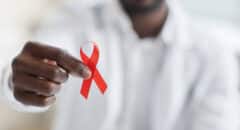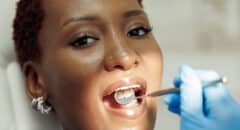
HIV affects everyone differently, and while many people are familiar with the common symptoms—such as flu-like illness in the early stages or infections during later stages—there are also less common signs that can indicate complications. Recognizing these unusual HIV symptoms early can help you get the right care and maintain your health.
Understanding HIV is about more than just knowing the obvious signs. The virus impacts the immune system in complex ways, which can lead to unexpected conditions that might be overlooked. This is especially important for both men and women, as some symptoms can manifest differently depending on your sex and overall health.
With proper medical care, adherence to antiretroviral therapy (ART), and lifestyle support, many people living with HIV lead full, healthy lives. Knowing the rare symptoms of HIV empowers you to take proactive steps and work closely with your healthcare team to prevent complications.
For more information on HIV, its symptoms, and treatment options, visit the CDC’s HIV resource page for reliable guidance.
Here are seven uncommon HIV symptoms to be aware of, and practical ways to manage them.
7 Uncommon HIV Symptoms
1. Lipodystrophy
Lipodystrophy involves changes in how your body stores and distributes fat, leading to noticeable differences in appearance. It can cause fat loss in the face, limbs, and abdomen, while simultaneously causing fat accumulation in areas like the back of the neck or around the abdomen.
What to do:
-
Medical treatment: ART can help regulate body fat changes.
-
Lifestyle: Regular exercise and balanced nutrition support overall health.
-
Optional interventions: Cosmetic procedures, such as fillers or liposuction, may be considered for severe cases.
Being aware of lipodystrophy early allows for adjustments in care and lifestyle before the condition progresses.
2. HIV-Associated Nephropathy (HIVAN)
HIVAN is a kidney-related complication caused by the effects of HIV on renal function. Swelling in your feet, ankles, and legs, foamy urine, or changes in urination patterns can indicate HIVAN.
Managing HIVAN:
-
Medical monitoring: Regular kidney function tests and consultation with your healthcare provider.
-
Medications: ART, ACE inhibitors, and receptor blockers can help prevent or manage HIVAN.
-
Lifestyle support: Controlling blood pressure, following a kidney-friendly diet, and taking supplements including CoQ10 or Omega-3s may aid kidney health.
Early recognition and treatment are essential for preventing kidney damage.
RELATED: 13 HIV Symptoms that Look Like Something Else
3. Bacillary Angiomatosis
Bacillary angiomatosis is a bacterial infection that primarily affects people with weakened immune systems. It can present as raised, red skin lesions, fatigue, fever, and swollen lymph nodes.
How to manage it:
-
Medical treatment: Antibiotics such as doxycycline or erythromycin are effective.
-
Ongoing care: ART remains a critical component of overall management.
-
Self-monitoring: Regularly check your skin and overall health for changes.
Though uncommon, bacillary angiomatosis can be serious if left untreated, so prompt medical attention is important.
4. Progressive Multifocal Leukoencephalopathy (PML)
PML is a rare infection of the brain caused by the JC virus. It primarily affects people with advanced HIV/AIDS and a severely compromised immune system. Symptoms may include:
-
Weakness on one side of the body
-
Difficulty speaking or understanding language
-
Vision problems
-
Cognitive difficulties
Managing PML:
-
There is no specific treatment, but maintaining ART and close neurological monitoring can help manage symptoms.
-
Prompt consultation with a neurologist is essential if you notice unusual neurological changes.
5. Thrombocytopenia
Thrombocytopenia occurs when platelet levels in the blood are low, which can lead to easy bruising, bleeding, or red spots (petechiae) on the skin. Nosebleeds and bleeding gums are also common signs.
Management:
-
Medical: ART, steroids, or immune globulin therapy may be prescribed.
-
Lifestyle: Avoid blood-thinning medications unless approved by your doctor, and schedule regular blood tests.
Keeping track of platelet levels helps prevent complications from excessive bleeding.
6. Aseptic meningitis
Aseptic meningitis is an inflammation of the protective membranes covering the brain and spinal cord, triggered by the immune response in HIV. Symptoms often resolve within 2–4 weeks, but can persist in some patients.
What to do:
-
Monitor for symptoms like headache, stiff neck, fever, and nausea.
-
ART may help reduce the risk of recurrence.
-
Consult your healthcare provider for evaluation and supportive care.
7. Stevens-Johnson syndrome (SJS)
SJS is a rare but serious hypersensitivity reaction that can occur in response to certain HIV medications. Symptoms include fever, rash, painful blisters, and flu-like symptoms.
Immediate action:
-
Seek urgent medical care if you suspect SJS.
-
Your healthcare provider may adjust medications and provide supportive treatment.
RELATED: HIV Treatment: Your Guide to Managing Side Effects

Other Uncommon HIV Symptoms
In addition to the seven primary conditions above, HIV can sometimes present with:
-
Chronic diarrhea: Persistent diarrhea unrelated to common infections.
-
Rhabdomyolysis: Breakdown of muscle tissue, releasing harmful proteins into the bloodstream.
-
Pulmonary candidiasis: Rare fungal lung infection.
-
HIV-associated wasting syndrome: Significant weight loss, weakness, diarrhea, and fever in untreated HIV.
-
Swollen lymph nodes: Especially in early stages.
-
Night sweats: Can result from the body’s immune response to HIV.
Awareness of these symptoms helps you communicate effectively with your healthcare team and detect issues early.
Living Well with HIV
While living with HIV comes with unique challenges, many people thrive with the right combination of medical care, lifestyle adjustments, and support. ART is the cornerstone of treatment, and regular check-ups help catch complications early.
Understanding uncommon HIV symptoms—both in men and women—can improve your quality of life and help prevent long-term complications. If you notice any unusual changes in your health, don’t wait—reach out to your healthcare provider promptly.
With knowledge, proactive care, and support, people with HIV can live full, healthy lives while effectively managing both common and rare HIV symptoms.








